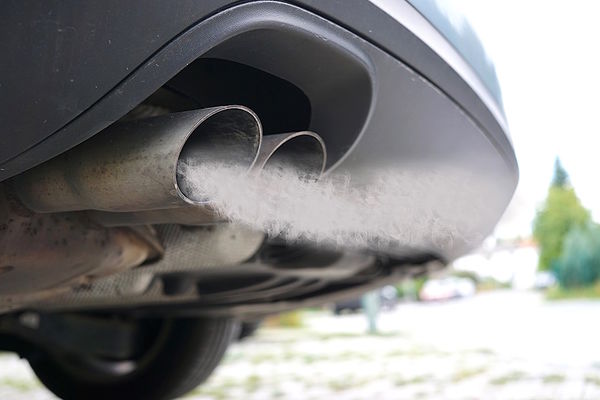By voting for a watered-down Euro 7 anti-pollution standard, which no longer has anything to do with the drastic initial project, the European Union is responding favorably to the intense lobbying of car manufacturers, refusing new investments in thermal cars whose marketing must continue. switch off in 2035 in favor of electricity. This is a first unprecedented victory since the Volkswagen dieselgate affair in 2015.
European car manufacturers have managed to push back a European Union project. It’s rare enough to be stressed. This has not happened since dieselgate in 2015 when the Volkswagen affair resulted in the adoption of a series of drastic regulations against the automobile industry to the point of abandoning the car thermal from 2035.
Euro 7 standard: same conditions as Euro 6
Indeed, on Monday September 25, the European Council, under the presidency of Spain, voted and endorsed the proposal for Euro 7 anti-pollution standards for cars, vans and trucks. A proposal which no longer has anything to do with the initial proposal from the European Commission since the new standard will not ultimately introduce new constraints. Note that this new text must apply from 2025, replacing Euro 6, to all passenger vehicles and heavy goods vehicles, whatever their type of engine.
The European Union press release indicates in fact that “the Council position maintains the existing testing conditions and emissions limits (as established in Euro 6) for M1 and N1 vehicles (passenger cars and vans) . » At most the limits for heavy vehicles will be lowered and the test conditions slightly modified. A voted text which no longer has anything to do with the initial proposal from Brussels.
Remember that the European Commission’s initial project was absurd to the extent that this drastic new standard required the automobile industry to invest in thermal cars for a maximum period of ten years since thermal cars will no longer be marketed from 2035. All in a context where European industry must focus on electric cars to cope with the massive arrival of Chinese manufacturers.
Intense lobbying since 2022
“For many months, the automobile industry (14 million employees) has been warning about the impact of overly strict standards on employment as well as on the price of cars, already less and less accessible for the middle class” , explains Xavier Horent general delegate of Mobilians. “And what is the industrial interest in overinvesting in technologies considered harmful and outdated in a little more than 10 years? It is better to accelerate in the technologies of the future, without exclusion, and to manage the renewal as well as the maintenance of the fleet in circulation.”
As a reminder, on November 10, 2022, the European Commission unveiled the outlines of the future Euro 7 standard which regulates pollution generated by motorized vehicles, in order to limit global warming (CO2 emissions) but above all to improve quality. air (particle emissions). The Commission’s proposals still included measures at the exhaust outlet but were enriched with checks on the brakes and tires. With compliance periods doubled to ten years and 200,000 km, the control conditions in real conditions are closer to the conditions and uses in Europe, integrating exterior temperatures up to 45 degrees and short journeys, such as urban commuters.
Euro 7 project: an increase in the cost of thermal cars
Since this date, the reactions of the automobile industry have been numerous and unanimous in rejecting this European project for the Euro 7 standard. For the ACEA, the environmental benefit of the Euro 7 proposal was very limited, even though it increased the cost of the Euro 7 standard. significantly the cost of vehicles. “To comply with Euro 7, truck manufacturers will need to shift substantial technical and financial resources from battery and fuel cell electric vehicles to the internal combustion engine. This will have a significant impact on our transition to zero-emission vehicles,” said Martin Lundstedt, CEO of the Volvo Group and Chairman of the ACEA Commercial Vehicle Council.
The testing conditions were particularly strongly contested by the entire automotive industry. We particularly remember this outing by the boss of the BMW Group. Some were, in fact, bordering on the ridiculous.
“How often, for example, do you go up a mountain pass, at full throttle, in minus seven degrees, in a car that is fully loaded and towing a trailer? We are fighting for a reasonable Euro 7 solution, which also effectively improves air quality in cities. The works council and the IG Metall union are firmly on our side,” said Oliver Zipse, Chairman of the Board of Management of BMW AG.
Why invest in doomed technology?
Needless to say, this standard was very poorly received by the automobile industry. The manufacturers’ management saw this as a provocation when the ban on the sale of new thermal vehicles is in effect for 2035. Therefore, why request two lines of simultaneous investment, especially since one will therefore be banned and the other, the electric vehicle, is very expensive? Luca de Meo, on behalf of Renault and ACEA, clearly deplored this situation, like Carlos Tavares and other German bosses. They also repeatedly repeat that the application of this standard will increase the price of thermal cars by up to 30%. This further distances many consumers from the possibility of purchasing environmentally friendly vehicles.
Last June, the Minister of Economy and Finance Bruno Le Maire judged that: “the Euro 7 standard is not useful, we must not spend money, billions, on rules that China and the United States does not impose on its manufacturers. In his eyes, the European Union should change its plans and abandon this standard which could harm the European automobile industry.
This article is originally published on auto-infos.fr







